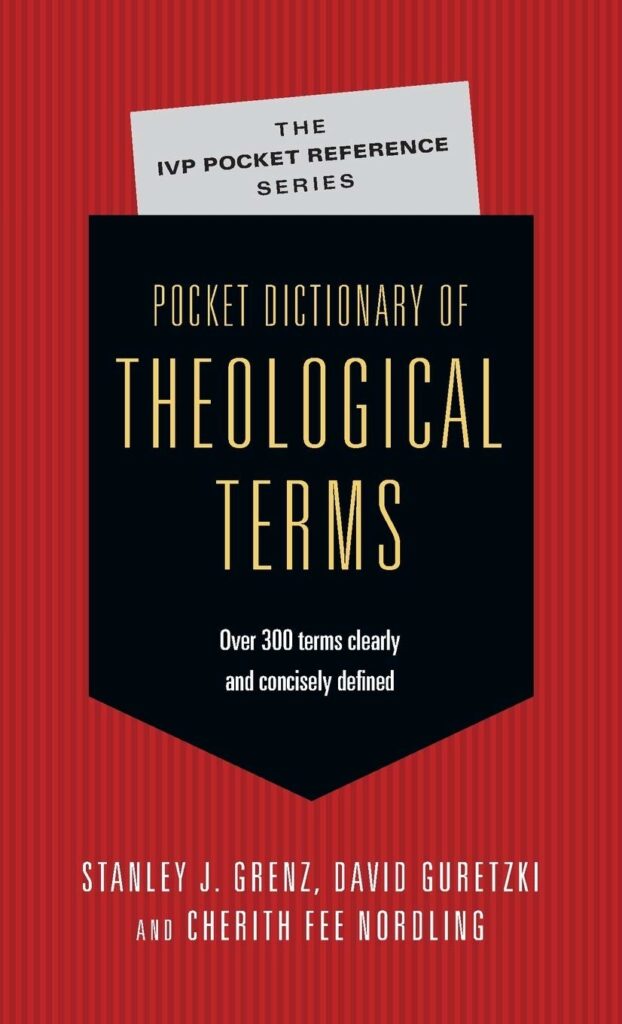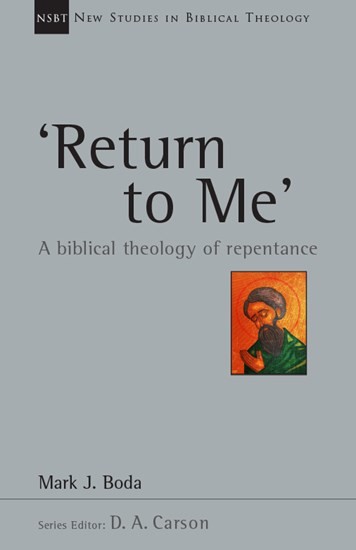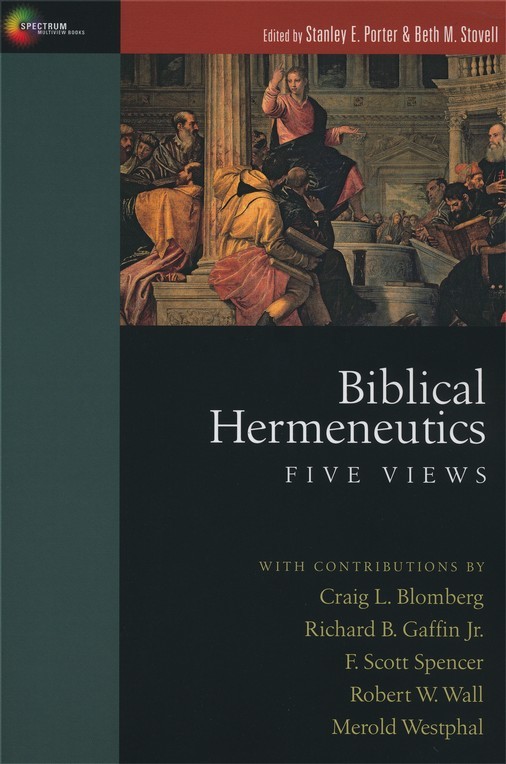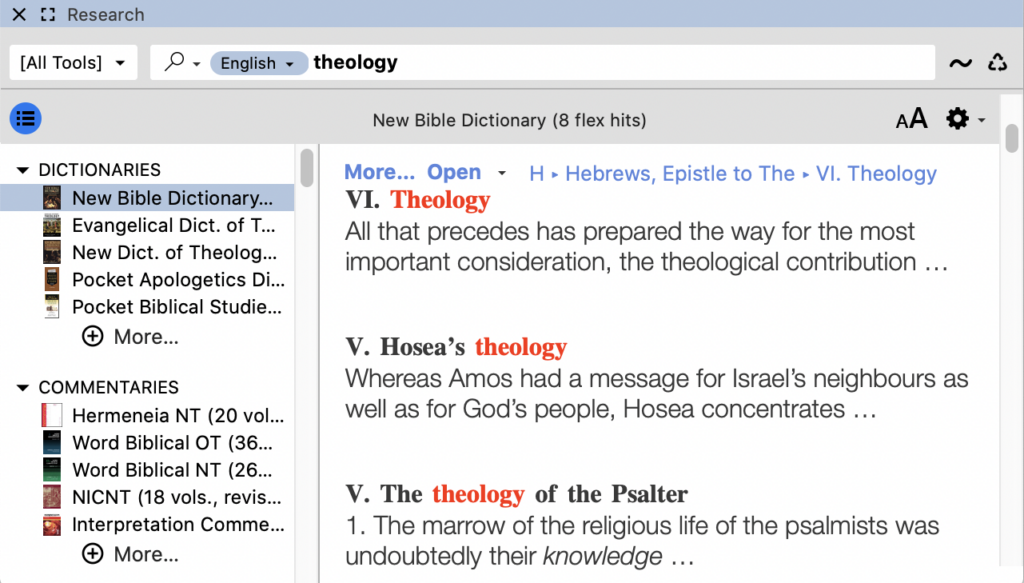Article Author: Abram Kielsmeier-Jones
Writing your own volume of systematic theology could be a daunting task. Stopping short of publication, many Accordance users will want to keep track of theological insights—their own and others’—as they make their way through the array of texts and tools the software offers.
These two blog posts, patterned after a Webinar I’ve been leading, will focus on systematic theology resources available in Accordance, as well as show you how to maximize user-created modules as a repository of your own theological insights.
I. Recommended Theology Resources in Accordance
Accordance has a large and growing library of theology tools. You can find them all here, sorted by most recently added.
Three kinds of theological resources you might consider are (a) concise tools, (b) more robust tools, and (c) tradition-specific theologies.
A. Concise tools
As for concise tools, I find a short dictionary of theological terms to be indispensable. There are two I use often: Pocket Dictionary of Theological Terms andWestminster Dictionary of Theological Terms. I just consulted the latter a few weeks ago for a sermon I was preaching on solidarity:
solidarity (Lat. solidum, “whole sum”) The alliance of those not directly involved in a situation of oppression in support of those who are oppressed. This is expressed attitudinally as well as in practice. As an ethical direction it is an expression of a human character trait or “virtue” as well as functioning as a “norm” or guide to behavior.
(If you have the resource in Accordance, you can go right to the entry here.)

Despite all the seminary courses I took in theology and all the theological reading I’ve done before and since, I’m likely to come across a technical theological term or theologian I don’t know or remember. Some examples: sublapsarianism, traducianism, and circumincession, just to name a few. All of these have short entries in the Pocket Dictionary of Theological Terms.

B. More robust tools
Next I’ll consult a more robust theological resource, whether a dictionary or systematic theology proper. A couple of go-to dictionaries for me are New Dictionary of Theology and Global Dictionary of Theology. Conscious that I bring my own cultural background and presuppositions to any text, I appreciate the diversity of writers that Global Dictionary of Theology features. I’m also likely to consult A New Testament Biblical Theology: The Unfolding of the Old Testament in the New by G.K. Beale and New Studies in Biblical Theology, a 42-volume series that addresses specific theological topics in depth, like repentance, death and the afterlife, and more.

C. Tradition-specific theologies
You may situate yourself in a particular theological stream (or streams) and/or denomination: reformed, Pentecostal, evangelical, Baptist… or perhaps you want a single volume that address a theological question from multiple vantage points. Accordance has you covered here, too. Whether you choose to utilize a resource that comes from your own tradition, or one that might challenge your tradition, Accordance’s selection allows users to read widely across various theological traditions.
II. So What Is Theology, Anyway? What is Systematic Theology?
Wanting to define “theology” and “systematic theology” gives us a great opportunity to put two concise theological resources to use.
Here’s how the Pocket Dictionary of Theological Terms defines theology:
theology. A religious belief system about God or ultimate reality. Theology commonly refers to the ordered, systematic study or interpretation of the Christian faith and experience of God based on God’s divine self-revelation. Theology also seeks to apply these truths to the full breadth of human experience and thought.
(If you have the resource in Accordance, you can go right to the entry here.)
The Westminster Dictionary of Theological Terms has this:
theology (Gr. theologia, from theos, “God,” and logos, “speech”; Lat. theologia) Language or discourse about God. It can be a scientific, methodical attempt to understand God’s divine revelation. It has classically been seen as “faith seeking understanding.”
(If you have the resource in Accordance, you can go right to the entry here.)

To learn more about “theology,” I could continue to work my way through theological resources, perhaps using Accordance’s Research feature to search all my resources at once (see above). Both definitions in my concise dictionaries stress theology’s starting point as God and theology as the act of “divine self-revelation.” Theology, in other words, is given, or revealed. This sets it apart from other disciplines of study.
What about systematic theology, specifically?
The Westminster Dictionary of Theological Terms defines systematic theology this way:
systematic theology The branch of Christian theology that attempts to present theological thinking and practice in an orderly and coherent way. It may be based on Scripture and expressed through doctrines. It implies an underlying philosophical frame of reference and a method to be followed. See also doctrine; theological method.
(If you have the resource in Accordance, you can go right to the entry here.)
Pocket Dictionary of Theological Terms has:
systematic theology. The attempt to summarize religious truth or the belief system of a religious group (such as Christianity) through an organized system of thought carried out within a particular cultural and intellectual context (see method of theology). A common systematic order in Christian theology begins with God and God’s self-revelation, followed by creation and the predicament of sin, God’s saving work in and through Jesus Christ, the Spirit as the agent in personal salvation, the church as the redeemed community of God’s people, and finally the goal of God’s program as leading to the end of the age, Christ’s return and eternity.
(If you have the resource in Accordance, you can go right to the entry here.)
The idea of “order” appears in both definitions. So my first step in creating my own systematic theology module in Accordance will be to make an ordered list of theology categories.
III. Systematic Theology Categories
I could simply follow the lead of the Pocket Dictionary definition above, and make my list look like this:
- “God and God’s self-revelation” (theology proper)
- “Creation and … sin” (anthropology and hamartiology)
- “God’s saving work in and through Jesus Christ” (soteriology and Christology)
- “the Spirit as the agent in personal salvation” (pneumatology)
- “the church as the redeemed community of God’s people” (ecclesiology)
- “the goal of God’s program as leading to the end of the age, Christ’s return and eternity” (eschatology)
A little adapting, and a little more research in Accordance, and I end up with a list like this:
- “Theology Proper”: doctrine of God
- Bibliology: Scripture
- Anthropology: humanity
- Hamartiology: the fall and sin
- Soteriology: redemption/salvation
- Christology: Jesus
- Pneumatology: Holy Spirit
- Ecclesiology: the Church
- Ethics: What to do about it
- Eschatology: end times
Now I’ve got my systematic theology categories, which will be how I organize my user-created module, into which I can now place relevant information, quotations, and Bible verses.
In the next post, I’ll talk about moving from the Bible to theology in Accordance, as well as suggest how to create your own systematic theology module.

